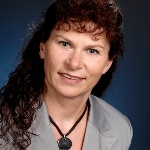They have advanced science with groundbreaking discoveries and inspired generations of students. On June 27, 2025, Professor Reinhold Ewald and Professor Alfred Krabbe celebrated their retirement from the University of Stuttgart’s Institute of Space Systems (IRS). Gisela Detrell, Professor of Human Spaceflight Technology at the Technical University of Munich and former research colleague of Professor Ewald, honored his contributions to the Institute of Space Systems in a heartfelt laudatory speech. Heinz-Wilhelm Hübers, Director of the DLR Institute of Space Research in Berlin and former member of the SOFIA project, paid tribute to Professor Krabbe’s outstanding achievements in the field of infrared astronomy.
A passionate astronaut and scientist
Astronaut Reinhold Ewald rose to public prominence on February 10, 1997, when he launched aboard the Soyuz TM-25 spacecraft to the Russian space station Mir. As a member of the European astronaut team, he played a key role in the planning, implementation and monitoring of numerous missions to the Mir and ISS space stations. In 2006, for example, he supervised his astronaut colleague Thomas Reiter during the ASTROLAB mission - the first European long-term mission on the ISS.
On September 1, 2015, he was appointed Professor of Astronautics and Space Stations at the IRS. Ewald and his team played a key role in shaping numerous projects, such as the ongoing development of the space simulator, which allows students to earn a "space driver's license". He designed experiments on life support systems for the International Space Station (ISS). A particular highlight: The annual Space Station Design Workshop – an international event where students from around the world develop visionary space projects under realistic conditions, which are then evaluated by an international panel of experts "With his approachable manner and palpable enthusiasm for space research, Reinhold has inspired generations of students," emphasizes Professor Stefanos Fasoulas, Executive Director of the IRS.
On stars, galaxies and black holes
On November 1, 2008, Alfred Krabbe assumed the professorship for Airborne Astronomy and Extraterrestrial Space Missions at the IRS. He also headed the German SOFIA Institute (DSI) and was responsible for the operation of the airborne observatory SOFIA (Stratospheric Observatory for Infrared Astronomy) within the German-American SOFIA project. In 2011 and 2019, SOFIA was stationed at Stuttgart Airport for one week – an exceptional event that allowed the University of Stuttgart to offer the general public insights into this unique research project. "With up to 45 staff members across three locations – one in Stuttgart and two in California – it was necessary to overcome not only scientific but also organizational challenges," said Professor Sabine Klinkner, Deputy Director of the IRS. "Alfred, together with his team, successfully mastered all of them."
Before joining the IRS, Krabbe worked, among other places, at the Max Planck Institute for Extraterrestrial Physics (MPE) in Garching, where he researched black holes alongside the future Nobel laureate Reinhard Genzel. Additional milestones in his scientific career include Heidelberg, Berlin, Berkeley, and Cologne.
Remaining engaged with science
"Both are not fully retiring from science. Ewald will still appear at the University of Stuttgart as a guest in lectures to share his experiences from his spaceflight aboard the Soyuz capsule. He also continues to contribute to events organized by the IRS and the University of Stuttgart. Krabbe is supporting his colleagues in the initial phase of the SOFIA Data Center (SDC) project. The goal is to make the data collected by SOFIA available to the international astronomical community for further scientific use.
Aerospace Research at the University of Stuttgart
Stuttgart’s aerospace sector is a nationally unique, interdisciplinary think tank for key technologies in space and on Earth. Researchers at the University of Stuttgart combine their expertise in climate and energy research, communication technology, propulsion systems, and AI-based aviation. A central focus is the development of sustainable technological solutions aimed at minimizing the environmental impact of aviation and spaceflight. As a partner of THE Aerospace LÄND, the University of Stuttgart contributes to the implementation of Baden-Württemberg’s state strategy to make aerospace sustainable, digital, and collaborative by 2050. Research is conducted in an interdisciplinary manner and in close collaboration with regional and international partners from academia and industry—for example, within the Collaborative Research Centers ATLAS (CRC 1667) and SynTrac (CRC-TRR 364).

Dörte Mehlert
Dr. rer. nat.DSI Education and Public Outreach












